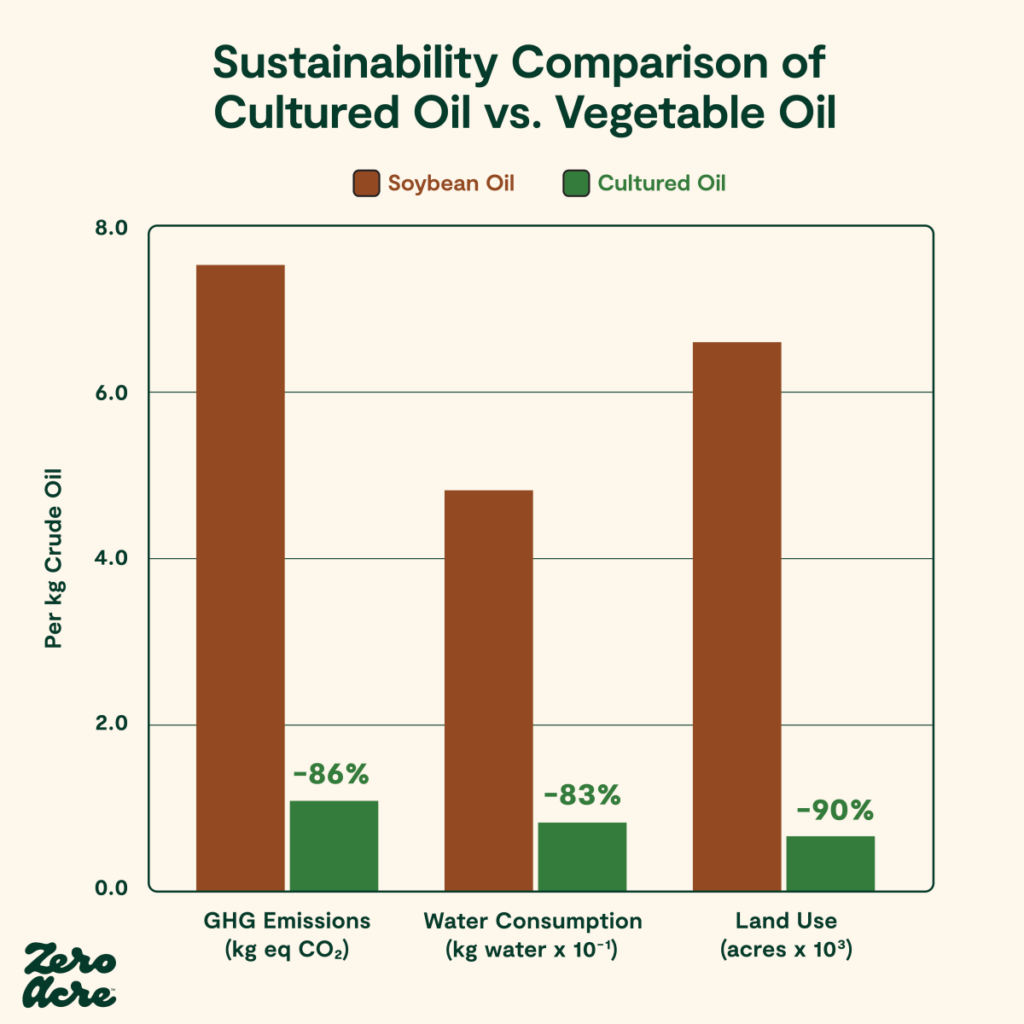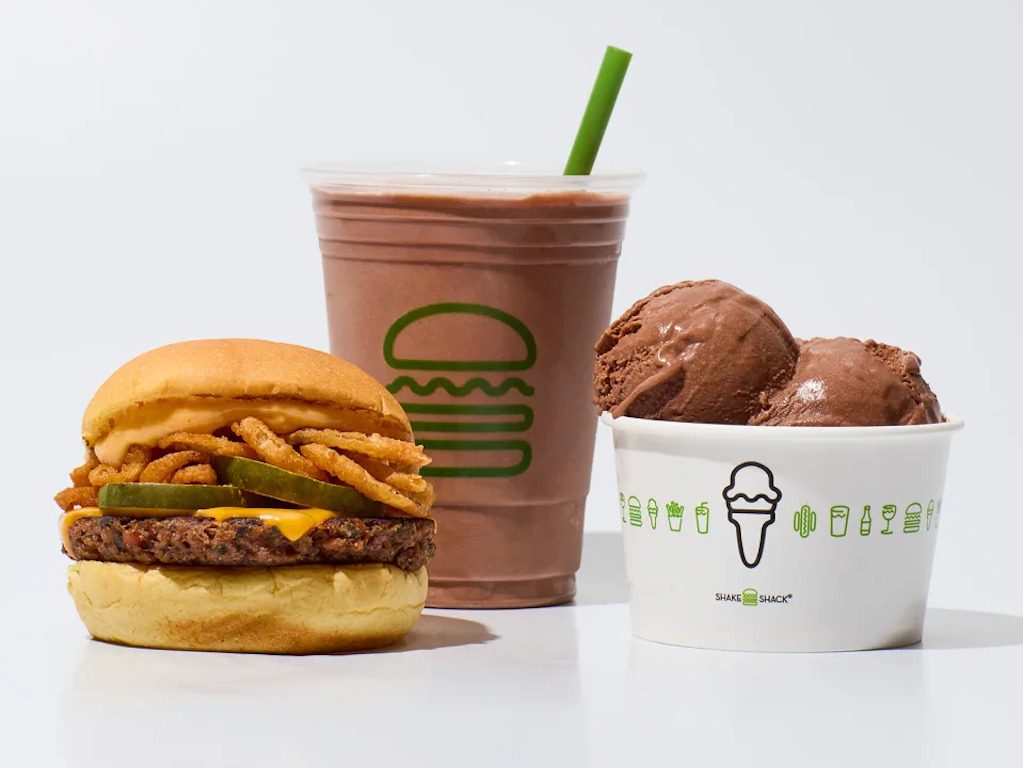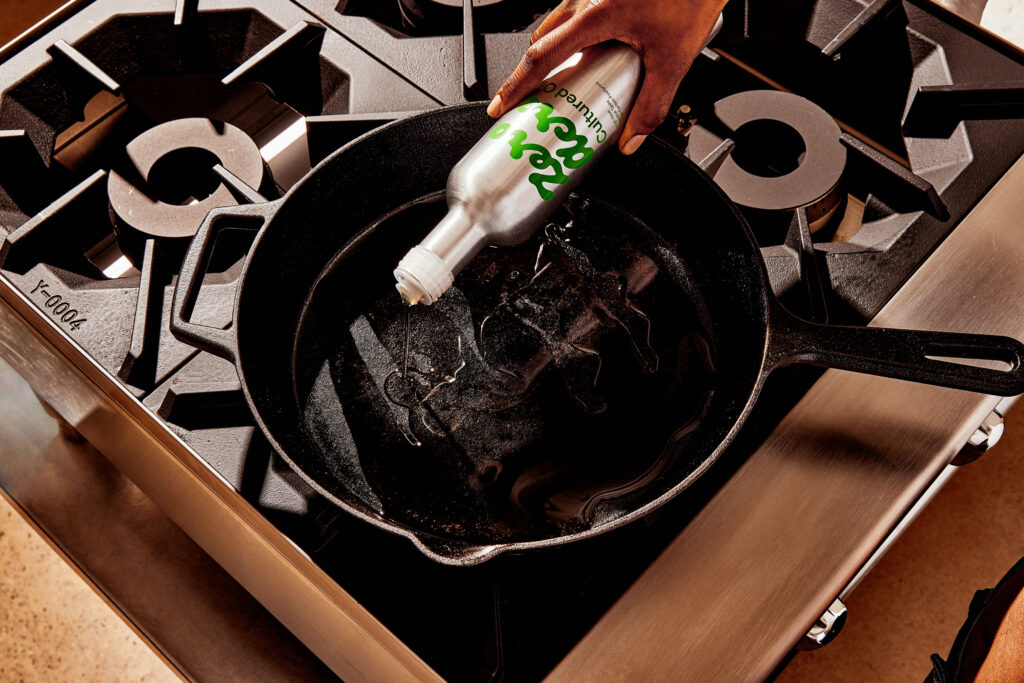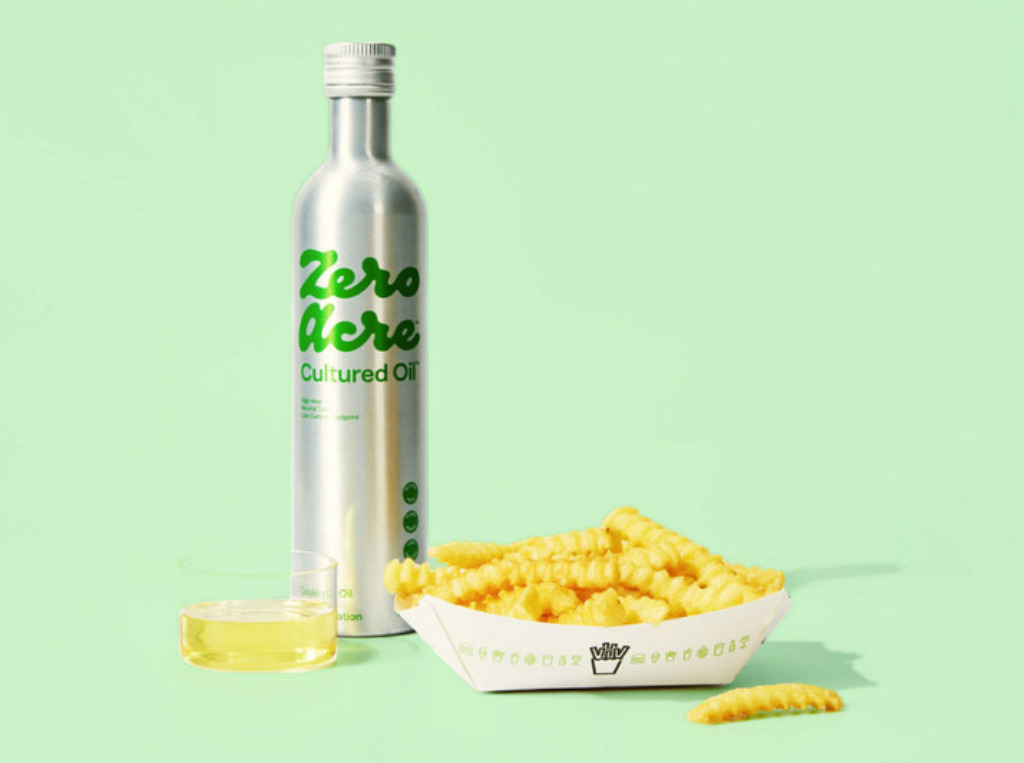Shake Shack NYC Pilots Rain-Fed Sugarcane Cultured Cooking Oil for Stack Burgers and Fries
5 Mins Read
Shake Shack has partnered with Californian startup Zero Acre Farms to trial the latter’s sustainable Cultured Oil on select menu items at two locations in New York City. The pilot is part of Shake Shack’s Stand for Something Good commitment, swapping soybean oil for Zero Acre’s better-for-you and eco-friendly fermented cooking oil.
Zero Acre’s oil will be used for Shake Shack’s crinkle-cut fries, ‘Shroom Burger, Shake Stack, Veggie Stack, Chicken Shack, Chicken Bites and dishes from its limited-edition Hot Menu. It marks Zero Acre’s food service debut, a year after it launched into the retail market.
Emerging from stealth mode in February 2022, Zero Acre’s all-purpose Cultured Oil uses rain-fed sugarcane, which is converted into oil by specific strains of microbes proficient at storing oils and fat. The process is similar to how sugar is fermented into alcohol. The result is a neutral-tasting, high-smoke-point cooking oil rich in heart-healthy monounsaturated fat, with a 90% smaller environmental footprint than conventional vegetable oil.
Better for you, better for the planet

The companies say vegetable oils are the second ingredient in most fried foods and the third most consumed food in the world and account for 20% of American calories. Substituting them with people- and planet-friendly fat alternatives feels like a no-brainer. Zero Acre’s fermented oil has more monounsaturated fat than olive and avocado oils and contains fewer fats linked to inflammation, heart disease and poor health.
In terms of its climate credentials, an independent life cycle assessment found that Zero Acre’s Cultured Oil uses 87% less land than canola oil, has 86% fewer greenhouse gas emissions than soybean oil, and consumes 99% less water than olive oil. However, it does have marginally higher water use than canola oil and emissions than sunflower oil. While its land use is the same as palm oil, the latter mostly grows near the equator and has caused widespread tropical deforestation as land is cleared for its production.
“Like many food businesses, our menu items depend on the natural environment so we can continue serving guests the food they love,” said Jeffrey Amoscato, senior VP of supply chain and menu innovation at Shake Shack. “It’s why we are continuously exploring new ways to reduce our environmental footprint, including partnerships with companies like Zero Acre, who are creating sustainable food solutions.
Shack Shack’s sustainability strides

Shake Shack’s Zero Acre trial at its Hudson Yards and Battery Park City stores comes during Climate Week NYC, the largest annual climate event of its kind in the US. “We remain committed to exploring initiatives that help us become a more sustainable business including the reduction of waste across operations, and collaborating with farmers, and suppliers on a regular basis,” said Amoscato.
It’s part of the company’s Stand for Something Good commitment, which aims to use high-quality ingredients, give back to its community, and provide unforgettable customer experiences. Sustainability and environmental responsibility are also a big focus across its operations. In its Annual Report last year, Shake Shack stated that it is committed to sourcing ingredients from suppliers with shared values, using “antibiotic- and hormone-free proteins from ethically raised animals”, removing unnecessary packaging elements and substituting them with more sustainable materials, and using more renewable energy.
In a message to shareholders, it also noted the importance of environmental, sustainability and social governance (ESG) goals to its brand value and image. “If we are not effective in addressing ESG matters affecting our industry, or setting and meeting relevant ESG goals, our brand image may suffer, which could lead to a loss of revenue,” the report stated. It added that failure to achieve ESG goals could impact its reputation with investors, partners and customers, as well as its ability to attract and retain employees.
In its 2023 Stand for Something Good report, it highlighted its environmental achievements. Annually, its restaurants collectively recycled 1.9 million lbs of waste oil, which saved around 100,000 jugs of oil, reduced emissions by 6.4 million pounds of CO2e and land use by 45,000 cubic ft. Its packaging is now made from 100% recycled fibre (with 95% post-consumer content), and it also reduced cardboard usage by 1,000 lbs per week.
Shake Shack’s Madison Square Park location is a two-star Certified Green Restaurant. And in terms of menu innovation, it recently launched a vegan patty made in-house at its US locations nationwide and debuted a plant-based chocolate milkshake and chocolate custard in partnership with Chilean food tech startup NotCo.
The burgeoning fat alternatives space

Zero Acre raised $37M in a Series A funding round last year, with participants including British band Coldplay, Robert Downey Jr’s FootPrint Coalition, and celebrity chef Dan Barber. And this March, it received an undisclosed sum from fast-food giant Chipotle’s VC firm, Cultivate Next.
“We’re not creating a synthetic oil that’s ‘only’ better for the environment,” Zero Acre founder Jeff Nobbs has previously said. “It’s a new category of oils and fats – we can make compositions that are more suitable for food and better for people. It’s a 1:1 replacement, not like using almond flour instead of wheat flour – you just use it instead of whatever product you’re replacing.”
Zero Acre is among a host of companies developing sustainable alternatives to planet- and health-harming fats around the world. Austrian startup Kern Tec upcycles fruit pits into oil for alt-dairy products, San Francisco-based Lypid has created a proprietary PhytoFat for plant-based meat, and Sweden’s Mycorena makes fermented fungi-based fat to replace animal fats.
Barcelona’s Cubiq Foods, meanwhile, is developing omega-3 fats for use in alt-protein, Asian alt-meat producer OmniFoods makes a vegan OmniNano fat to mimic the juiciness of conventional meat, and AI-led startup Shiru‘s OleoPro plant fat is also for alt-protein applications. Elsewhere, Silicon Valley’s Mission Barns is making cultivated animal fat. This space is also becoming more popular: Dutch startup Upstream Foods makes cell-cultured salmon fat, while Singapore’s ImpacFat makes cultivated fish fat.
Meanwhile, alt-chocolate producer ChoViva is working on its own cocoa butter and palm oil alternatives. Many brands are coming up with palm oil substitutes for use in both food and other applications. This includes Estonian startup Äio, UK-based Clean Food Group, New York’s C16 Biosciences and Dutch company NoPalm Ingredients.




